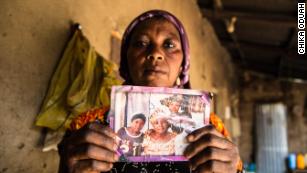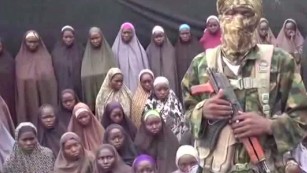Yakubu last saw signs of her daughter two years ago when the young woman appeared in a Boko Haram propaganda video.
Wearing a faded black abaya and patterned headscarf, Dorcas, then 18, spoke on camera under the instruction of a camouflage-clad militant armed with a gun. Hesitantly, she explained who she was and where she was from before she made a scripted plea for freedom.
Behind her, fellow hostages in floor-length robes watched as Dorcas urged parents to press the Nigerian government to free terrorist fighters in exchange for the girls’ release.
At the time, Yakubu told CNN: “Seeing my baby standing with a terror(ist) with … ammunition around his neck is not easy for a mother.”
Dorcas grew up as one of five children (two boys and three girls) born to Esther Yakubu and her husband, Yakubu Kabu — a local government worker and a driver, respectively.
A hard-working student, Dorcas had been looking forward to her graduation, her mother said. She was interested in business and also wanted to become a professor.
Esther Yakubu promised she would ensure her daughter continued her education to obtain multiple degrees.
“Unfortunately … she has not graduated from secondary school. Not only that, she’s nowhere to be found,” she said.
A member of a choir in Chibok, Dorcas loved to sing, even while cooking, her mother said, breaking out into her daughter’s favorite tune.
“I used to hear her sing (it) always,” Yakubu said. “Anytime I want to recall her to my soul, I sing that song.”
Credit: CNN
















